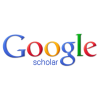Research Article
Issue Editorial Board

Uzmanlık alanları arasında İslam Tarihi, Hint ve Bengal Tarihi, Osmanlı Çalışmaları, Orta Çağ Türk Tarihi ve Modern İslam yer almaktadır. SSCI, Scopus ve ESCI indeksli dergilerde birçok bilimsel makalesi yayımlanmış olup, Web of Science (SSCI/AHCI & ESCI) ve DergiPark kapsamındaki akademik dergilerde hakemlik yapmaktadır. Lisans düzeyinde Emevî-Abbâsîler Tarihi, İslam Medeniyeti Tarihi ve İslam Mezhepleri Tarihi derslerini vermektedir.



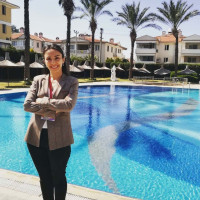


Kültürel Çalışmalar, Siyaset Felsefesi, Mekan Felsefesi, Türk Siyasal Tarihi, Modernleşme Kuramları ve Kentsel Çalışmalar
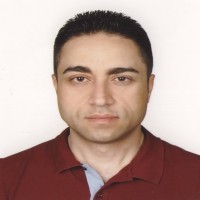


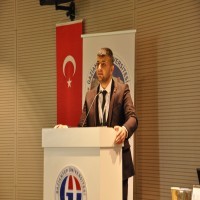



Issue Reviewers

.

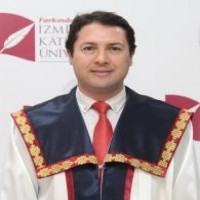

Prof. Dr. Ali Asker 1968 doğumludur. 1986-1993 yılları Azerbaycan Teknik Üniversitesinde Radyoteknik Fakültesinde lisans ve yüksek lisans (bileşik) eğitime başlamıştır. 1987-1989 yıllarında SSCB Silahlı Kuvvetleri Transkafkasya Askeri Dairesinde askerlik görevini bitirdikten sonra eğitimine devam etmiştir. Şubat 1992’de Hocalı Soykırımı’nın ardından, gönüllü olarak Azerbaycan Milli Ordusuna yazılmış ve Birinci Karabağ Savaşı’na iştirak etmiştir. Öğrenim sebebiyle terhis edildikten eğitimine devam etmiş, 1993’te eğitimini tamamlayarak uzman mühendis derecesi almıştır. Ali Asker, 1993’te Bakü Devlet Üniversitesi Hukuk Fakültesini kazanarak 1997’de yüksek onur diplomasıyla bu eğitim kurumundan mezun olmuştur. 1997-1998 yıllarında Ege Üniversitesi Türk Dünyası Araştırmaları Enstitüsünde bir sene hazırlık eğitiminin ardından Marmara Üniversitesi SBE Kamu Hukuku Anabilim dalında yüksek lisans eğitimine başlamış, 2000 yılında Azerbaycan Cumhuriyeti Anayasasında Devlet Sistemi ve Temel Öğeleri konulu tezini savunmuştur. Ali Asker, Genel Kamu Hukuku dalında başladığı doktora programından “Eski Sosyalist Ülkelerde Siyasi Rejim Değişmeleri” tezini savunarak 2007 yılında mezun olmuştur. Değişik düşünce kuruluşlarında Kafkasya, Rus-Slav, Orta Asya ve Türk Dünyası üzerine çalışmalar yapmış, birçok yayına ve tercüme esere imza atmıştır. 2011 yılından Karabük Üniversitesi İİBF Siyaset Bilimi ve Kamu Yönetimi Bölümünde öğretim üyesi olarak göreve başlamıştır. 2016’da Bölge Çalışmaları alanında doçent unvanı almıştır. Dünya anayasalarını Türkçeye kazandırması nedeniyle kendisine 2019 yılında Hukuk Ansiklopedisi Özel Ödülü tevcih edilmiştir. 2021’de aynı fakültenin Uluslararası İlişkiler Bölümünde Uluslararası Siyaset Profesörü kadrosuna atanmıştır. Ali Asker’in Rusya ve Avrasya ülkeleriyle ilgili bölge çalışmaları, hukuk, tarih, düşünce tarihi ve kültür üzerine çok sayıda yayını bulunmaktadır.









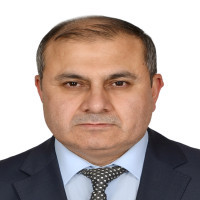

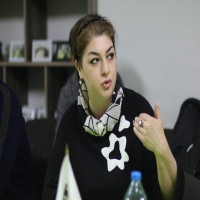
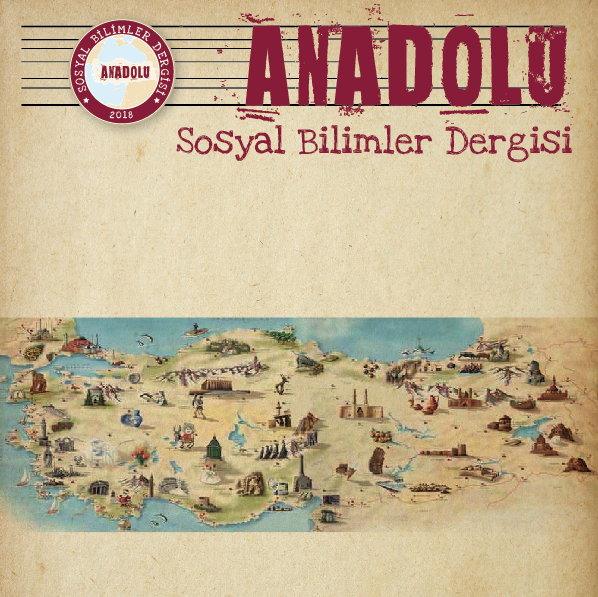


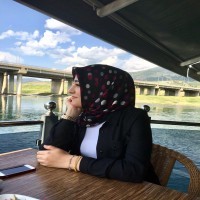
Aim & Scope
ASSAM International Refereed Journal (ASSAM UHAD) is published in order to bring the researches and scientific studies carried out in the field of social sciences to the academic literature.
ASSAM International Refereed Journal (ASSAM UHAD) is a refereed scientific journal published by ASSAM twice a year, in April and November. The journal publishes articles in economics, business administration, history, sociology, finance, international relations, public administration, political science and other related fields. The works submitted for publication must not have been published elsewhere or submitted for publication. The publication language of the journal is Turkish, Arabic and English. The publication language of the journal will be English only as of the April 2026 issue. All responsibility for the works to be published in the journal belongs to the author or authors. The publication fee policy for articles will be valid from the November 2025 issue. Article submission fees are specified in the journal's fee policy. It is necessary to apply to our journal via the DergiPark system //https://dergipark.org.tr/assam). Each uploaded article is firstly scanned by iThenticate AND Turnitin plagiarism scanning programmes. Articles with a scan result above 20% are rejected. Articles are evaluated by at least two referees with blind refereeing. In addition, our journal has decided to continue its publication life only in the form of issues as of 2024.
Author Guidelines
Articles submitted to the journal should be sent in accordance with the format and spelling rules of our journal's article template. Articles that are not prepared in accordance with the spelling rules will not be considered for publication.
When you first submit your article, we request three separate files from you. The first is the FULL TEXT FILE of your manuscript; prepare this file according to the spelling rules and template of our journal. This file should not contain information introducing the author(s) (author names, which project the article is supported by, in which institution the article was studied, from which article / thesis it was derived, etc.). The second file is the APPLICATION INFORMATION FILE. All information about the author(s) and the article should be included here. The third file is the COPYRIGHT FORM. You can download all necessary files from the links below.
(NOTE: For studies requiring Ethics Committee Decision, the Ethics Committee Approval Document should be included as the fourth file in the application).
Click here to download the article template.
Click here for author application information form.
Click here to download the copyright form.
BASIC RULES
1. Manuscripts submitted for publication should not exceed 25 pages including abstracts and bibliography.
2. At the beginning of the article, there should be an abstract of not more than 250 words in Turkish and English (Arabic if available), including the title of the article, and five keywords in Turkish and English. Turkish abstracts should be included under the title ‘Abstract’ and English abstracts should be included under the title ‘Abstract’.
3. The title of the article should be written in 14 pt, bold and capital letters. The author's name should be given in 11 pt, bold and italicised under the title of the article, and the author's title, place of work and e-mail address should be indicated as a footnote with (*) sign.
4. The font should be Times New Roman, 11 pt, lines should be single spaced, footnotes should be 9 pt and single spaced.
5. English and Turkish abstracts should be written in Times New Roman, 10 font size, lines should be single spaced.
6. Page numbers should not be used in articles.
7. Paragraph writing, first line 1 cm, 6 pt before and 6 pt after paragraphs, justified, single spaced.
8. Subheadings should be aligned with the preceding heading. Only the first letters of subheadings should be capitalised.
Section Headings
In the article, main, intermediate and subheadings can be used to provide an organised transfer of information, and headings can be numbered if necessary.
1...........
1.1.............
1.1.1.........
2........
2.1.......
2.1.2........
3.......
3.1.......
3.1.2....
3.2.......
3.2.1........
Tables and Figures
Tables should be numbered and titled. Tables should be placed where they should be in the text. Figures should be prepared for colour printing. Figure numbers and names should be written centrally just below the figure.
Illustrations
High resolution, print quality scanned images should be given in their place in the text. Picture nomenclature should follow the rules in figures and charts.
Quotations and References
The articles to be submitted to our journal must comply with APA 7 citation and referencing standards specified in the link below. Studies that do not comply with these rules will be returned to the author for correction. Quotations exceeding a few sentences in the text should be written 1 cm from the right and left.
Citations and Bibliography
Citation and referencing must follow APA 7 rules. You can find more information and examples of APA 7 rules from the link below.
https://apastyle.apa.org/style-grammar-guidelines/references/examples
Ethical Principles and Publication Policy
ETHICAL PRINCIPLES AND PUBLICATION POLICY
Each uploaded article is firstly scanned by iThenticate plagiarism scanning programme. Articles with a similarity rate of more than 20% are rejected. Manuscripts are evaluated by at least two referees through blind refereeing. The responsibility of the articles published in the journal belongs to the authors. The responsibility of plagiarism and plagiarism within and outside the 20% similarity rate determined in the preliminary control of the article belongs to the authors. Publications should be scientific articles prepared in a cause-effect relationship and should contribute to science. Articles that do not comply with the spelling and format rules are not sent to the referee and are not published. The relevant studies of the authors who do not send the correction text within 30 days are rejected. In ASSAM International Refereed Journal, none of the article submission and publication processes are subject to any charge.
Within the framework of the criterion of ‘ethics committee approval must be obtained separately for clinical and experimental human and animal studies requiring ethics committee decision, this approval must be specified and documented in the article.’, which ULAKBIM / TR Index made mandatory in 2020, ethics committee approval for qualitative and quantitative field research with human and animal samples should be given as an attachment to the article and it should be stated that ethical rules are followed by specifying the date and number of the document in the method section of the article.
Attention is paid to the compliance of the studies submitted to the journal with Research and Publication Ethics. Compliance with ICMJE (International Committee of Medical Journal Editors) recommendations and COPE (Committee on Publication Ethics) international standards for editors and authors is required.
ETHICAL PRINCIPLES AND RULES FOR AUTHORS
- Articles submitted to ASSAM-UHAD must be original studies in the fields of social sciences.
- All sources used in the articles should be cited correctly and appropriately.
- The articles submitted to ASSAM-UHAD must not have been submitted to another journal and ASSAM-UHAD Copyright Transfer Form must be filled.
- Persons who do not contribute intellectually to the article should not be included as authors.
- Conflicts of interest regarding the submitted article should be clearly stated and the reason should be clearly stated.
- Authors may be asked to submit raw data about their work to the editorial board while it is in the refereeing process, in which case authors may be expected to share their raw data with the editorial board. Authors are obliged to keep the data related to a published article for 5 years.
- Authors should inform the editor and the editorial board when they detect an error in their work. They should carry out the correction or withdrawal processes in co-operation with the editors.
ETHICAL PRINCIPLES AND RULES FOR REFEREES
All articles submitted to ASSAM-UHAD are evaluated through a double blind review process. Double blind reviewing means that the authors are kept confidential from the referees and the referees are kept confidential from the authors in order to ensure an unbiased, objective and independent evaluation process. Manuscripts are sent to the referees for evaluation through the Dergipark system. The referees make their decisions on the contribution of the article to the main publication areas of ASSAM-UHAD and whether the article is publishable or not by filling out the form sent to them through the system. The ethical responsibilities of academicians working as referees in ASSAM-UHAD are as follows:
- Referees should pay attention to refereeing articles related to their fields of expertise.
- Referees should inform the editors that they cannot evaluate studies that may have a conflict of interest.
- Reviewers should evaluate the articles impartially.
- Reviewers are required to fill in the online Article Evaluation Form for the articles they evaluate. Referees should express their opinions about the article they evaluate in the article evaluation form with justification.
- Referees should avoid using a language that may offend the authors in their article evaluations, on the contrary, the style they use in their suggestions should be scientific. In case of a negative situation, editors can contact the referee and request them to review and correct their comments.
- Reviewers are required to complete their evaluations by complying with ethical responsibilities within the time given to them.
ETHICAL PRINCIPLES AND RULES FOR EDITOR(S)
Editors are obliged to fulfil the ethical responsibilities in the ‘COPE Guide to Ethical Behaviour and Best Practices for Journal Editors’ published by the Committee on Publication Ethics (COPE). The ethical duties and responsibilities of editors are as follows:
- The editor is obliged to endeavour to improve the quality of the journal and contribute to its development.
- The editor is required to support the freedom of expression of the authors.
- The editor should ensure that the sections of the journal where peer review is not required (letters to the editor, invited papers, conference announcements, etc.) are clearly indicated.
- The editor should endeavour to ensure that the articles published are compatible with the knowledge and skills of the journal's readers.
- The editor should ask the referees to evaluate the articles in accordance with their knowledge and expertise. Thus, it should be ensured that the articles are appropriately evaluated by experts in their fields.
- The editor is obliged to require reviewers to declare that they have no conflicts of interest before evaluating an article.
- The editor should communicate to the referees all the necessary information about the referee evaluation process and what the referees are expected to do
- The editor should ensure that the peer-review process is conducted in a double blind review process and should not disclose authors to reviewers and reviewers to authors. - The editor should evaluate reviewers based on their timeliness and performance.
- The editor should create a database of reviewers and update the database according to the performance of the reviewers.
- The editor should remove reviewers who make rude and offensive comments or return late from the reviewer list.
- The editor should constantly renew and expand the referee list according to the referees' areas of expertise. - The editor should continuously update the publication and writing rules and the sample template for authors on what is expected of them.
- The editor should evaluate the manuscripts submitted to the journal in terms of the journal's editorial rules, the importance and originality of the work, and if he/she decides to reject the manuscript during the first submission process, he/she should clearly and impartially communicate the reasons to the authors. In this process, if it is decided that the article needs to be revised in terms of grammar, punctuation and/or spelling rules (margins, proper referencing, etc.), the authors should be informed about this and they should be given time to make the necessary corrections.
- Manuscripts should include the dates of submission and acceptance for publication.
- When authors request information about the status of their manuscripts, the authors should be informed about the status of their manuscripts without disturbing the double blind review process.
- The final decision on articles submitted to the journal for publication belongs to the editorial board. The editorial board is responsible for determining the articles to be published in the journal within objective and academic criteria.
- The editor should inform the members of the editorial board about the publication and writing rules and explain what is expected of them.
- The editor should communicate the most up-to-date version of the publication and writing rules to the members of the editorial board.
- The editor should evaluate the members of the editorial board and elect members who will actively participate in the development of the journal to the editorial board.
- The editor should inform the members of the editorial board about the following roles and responsibilities:
-To support the development of the magazine
-Writing compilations related to their field of specialisation when requested to do so
- To review and improve publication and writing rules
- To fulfil the necessary responsibilities in the operation of the journal
PLAGIARISM AND UNETHICAL BEHAVIOUR
All articles submitted to ASSAM-UHAD are scanned with any plagiarism software programme before publication. Articles with a similarity rate of 20% or less are accepted for publication. Articles exceeding this rate are examined in detail and if deemed necessary, they are sent back to the authors for revision or correction, and if plagiarism or unethical behaviour is detected, publication is rejected.
Some unethical behaviours are listed below:
- Identification of persons who did not contribute intellectually to the study as authors,
- Failure to acknowledge the intellectual contributors to the study as authors,
- Failure to indicate if the article is derived from a master's/doctoral thesis or a project,
- Slicing, i.e. publishing more than one article from a single study,
- Failure to declare conflicts of interest regarding submitted manuscripts,
- Deciphering the process of double blind refereeing,
Price Policy
ASSAM Uluslararası Hakemli Dergide, makale gönderme ve yayınlama süreçlerinin hiçbiri ücretlendirmeye tabi değildir.
Indexes
Citation Indexes
Other Indexes
Journal Boards
Concessionaire on behalf of ASSAM

Editor-in-Chief

Responsible Editor-in-Chief

Journal Secretary

Editors


Turkish Language Editors


English Language Editors


Uzmanlık alanları arasında İslam Tarihi, Hint ve Bengal Tarihi, Osmanlı Çalışmaları, Orta Çağ Türk Tarihi ve Modern İslam yer almaktadır. SSCI, Scopus ve ESCI indeksli dergilerde birçok bilimsel makalesi yayımlanmış olup, Web of Science (SSCI/AHCI & ESCI) ve DergiPark kapsamındaki akademik dergilerde hakemlik yapmaktadır. Lisans düzeyinde Emevî-Abbâsîler Tarihi, İslam Medeniyeti Tarihi ve İslam Mezhepleri Tarihi derslerini vermektedir.

Arabic Language Editors
Assistant Editors

Kültürel Çalışmalar, Siyaset Felsefesi, Mekan Felsefesi, Türk Siyasal Tarihi, Modernleşme Kuramları ve Kentsel Çalışmalar



Ceyda Kurt 2015-2019 yılları arasında Giresun Üniversitesi Uluslararası İlişkiler Bölümünden mezun oldu. Lisans dönemi boyunca çeşitli kongrelerde bildiriler sunulmuş hem de kongre düzenleme kurulunda görevler üstlenmiştir. Bunlar; Süleyman Demirel Üniversitesi 6.Yerel Yönetimler Öğrenci Kongresi (2017), “Yerel Yönetimlerde Kadın İstihdamı ve Sosyal Hizmetler Samsun Atakum Belediyesi Örneği”. Karadeniz Teknik Üniversitesi 2. Uluslararası İlişkiler Öğrenci Kongresi (2018), "Temel Değerler ve Sınır Güvenliği Bağlamında Avrupa Birliğinin Suriye Politikasındaki Açmazları" Başlıklı bildiri sunulmuştur. Düzenleme kurulunda yer aldığı ve bildiri sunduğu KAYSEM 13 (2019) Gaziantep Üniversitesi, “Enerji Güvenliği Perspektifinden Türkiye’nin Doğu Akdeniz Politikası: Sorunlar Ve Öneriler” başlıklı bildiri şeklindedir; Giresun Üniversitesi Uluslararası İlişkiler Topluluğunun kurucu üyeliğini ve başkan yardımcılığı faaliyetlerini yürütmüştür. Akademik Düşünce Enstitüsü Derneğinin kurucu üyeliğini ve başkan yardımcılığı görevini 2018-2021 yılları arasında yürütmüştür. Şuan Hitit Üniversitesi Uluslararası İlişkiler ve Güvenlik A.B.D. Yüksek Lisans yapmaktadır.
Field Editors

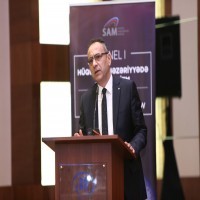






Uzmanlık alanları arasında İslam Tarihi, Hint ve Bengal Tarihi, Osmanlı Çalışmaları, Orta Çağ Türk Tarihi ve Modern İslam yer almaktadır. SSCI, Scopus ve ESCI indeksli dergilerde birçok bilimsel makalesi yayımlanmış olup, Web of Science (SSCI/AHCI & ESCI) ve DergiPark kapsamındaki akademik dergilerde hakemlik yapmaktadır. Lisans düzeyinde Emevî-Abbâsîler Tarihi, İslam Medeniyeti Tarihi ve İslam Mezhepleri Tarihi derslerini vermektedir.



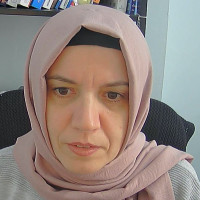
Seyhan BULAN
Doğum Tarihi: 19.09.1977
İletişim: 532-587-88-11
seyhanbulan1@gmail.com
Yabancı Dil: İngilizce
Aldığı Sertifikalar:
Eğitimcinin Eğitimi Sertifikası İstanbul Üniversitesi Kasım/2024
Temel İyi Klinik Uygulamalar Eğitimi Kütahya Sağlık Bilimleri Üniversitesi Temmuz/2024
SPSS Analizi Akademik Raporlama İstatistik Türkiye Şubat/2022
Yapısal Eşitlik Modeli ve Akademik Raporlama İstatistik Türkiye Mart/2022
Bilgisayar İşletmenliği Nokta Bilgisayar Haziran/2020
Kardiyopulmoner Resüsitasyon İ.Ü. Cerrahpaşa Tıp Fakültesi Aralık/ 2011
EĞİTİM
Doktora Sağlık Yönetimi İ.Ü. Cerrahpaşa 2024
Y. Lisans Hastane ve Sağlık Kurumları Yönetimi Beykent Üniversitesi 2018
Lisans Yönetim Bilişim Sistemleri Anadolu Üniversitesi Devam
Lisans Ebelik Ondokuzmayıs Üniversitesi 2012
Lisans İşletme Anadolu Üniversitesi 2008
Yüksek Lisans Tezi:
“Sağlık Meslek Lisesi Öğrencilerinin İş Sağlığı ve Güvenliği Farkındalıklarının Değerlendirilmesi”
Prof. Dr. Ayşegül Kaptanoğlu
Doktora Tezi:
“Program Geliştirme Aracı Olarak Akıllı Müfredat Model Önerisi ve Sağlık Yönetimi Eğitimi Uygulama Örneği”
Prof. Dr. Alper Cihan, Dr. Ahmet Ağır
GÖREVLER:
Başhemşire Kızılay Kağıthane Hastanesi 2023-2024
Hemşire İ.Ü. Cerrahpaşa Tıp Fakültesi 2008-2022
İşveren Ülkü Gıda Ltd. Şti 2002-2006
Tıbbi Mümessil Scherıng Alman İlaç Sanayii Ltd.Şti 2000-2001
Finans Danışmanı Doğan Hayat Sigorta AŞ 1999-2000
Ebe Behçet Uz Çocuk Hastanesi 1996-1999
İdari Görevler:
Başkan Yardımcısı: Sağlık-Sen Sağlık ve Sosyal Hizmet Çalışanları Sendikası Üniversite Hastaneleri Şubesi 2013-2014
Kongre ve Sempozyum Katılımı Faaliyetleri: ASEAD 14. Uluslararası Sosyal Bilimler Sempozyumu, Oturum Başkanı, Türkiye 2024.
ESERLER
A. Uluslararası hakemli dergilerde yayımlanan makaleler:
Bulan S., & Cihan A., (2024). Examination Of The Mission and Vision Statements Of Health Management Departments İn Türkiye: A Thematic Analysis. Journal of Higher Education and Science/Yükseköğretim ve Bilim Dergisi, 14(3), 447-461.
Bulan, S., & Söyük, S. (2024). Presenteizm Konusunda Yapılan Tezlerin Değerlendirilmesi. International Journal of Disciplines in Economics & Administrative Sciences Studies, 8(46), 721-730.
Bulan S., Seçer İ., Türkoğlu A., Kaptanoğlu A. (2019). The Relationship Between Occupational Health And Safety Education With Student Awareness Case Of Health Vocational High School. Folıa Pallıatrıca (1),4-19.
B. Uluslararası bilimsel toplantılarda sunulan ve bildiri kitaplarında (proceedings) basılan bildiriler:
Bulan, S. (2024, Kasım), YÖK ATLAS Veritabanı İncelemesi: Sağlık Yönetimi Lisans Örneği. ASEAD 14. Uluslararası Sosyal Bilimler Sempozyumu, Türkiye.
Bulan, S., Kaptanoğlu A. (2018, Ekim), Sağlık Meslek Lisesi Öğrencilerinin İş Sağlığı ve Güvenliği Farkındalıklarının Değerlendirilmesi. ILCMSC (Uluslararası Lıber Cogıto Multidisipliner Bilimler Kongresi, İstanbul.
C. Yazılan ulusal/uluslararası kitaplar veya kitaplardaki bölümler:
Bulan, S., (2024). Değişim Mühendisliğine Genel Bakış. A. Arslan (Ed.) Yönetim ve Organizasyonda Güncel Konular içinde (s.1-26). Gaziantep: Özgür Yayınları, ISBN (PDF): 978-625-95526-3-7.
D. Ulusal hakemli dergilerde yayımlanan makaleler:
Bulan, S., & Haluk Özsarı, S. (2023). COVID-19’un Türkiye Sağlık Sigorta Sektörüne Etkisi. Journal of Aksaray University Faculty of Economics & Administrative Sciences/Aksaray Üniversitesi İktisadi ve İdari Bilimler Fakültesi Dergisi, 15(1),57-66.



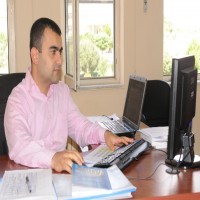
1984 yılında Hatay Dörtyol'da doğdu. 2008 yılında İnönü Üniversitesi İİBF İşletme bölümünden, 2012'de İnönü Üniversitesi SBE Muhasebe-Finansman Anabilim Dalında yüksek lisansını 2018'de İnönü Üniversitesi SBE Muhasebe-Finansman Anabilim Dalında doktora eğitimini tamamladı. 2022 yılında Finans alanında Doçent unvanını aldı. Ulusal ve uluslararası alanda birçok makale, bildiri, kitap/kitap bölümü vardır. 2011-2018 yılları arasında Kilis 7 Aralık Üniversitesi SBMYO Muhasebe ve Vergi ve Uygulamaları Bölümünde öğretim görevlisi olarak 2018-2021 arası aynı bölümde Dr. Öğr. Üyesi olarak çalıştı. 2021-2022 yılları arasında Malatya Turgut Özal Üniversitesi SBBF Uluslararası Ticaret ve Finansman bölümünde Dr. Öğr. Üyesi olarak, 2022 yılından itibaren aynı bölümde Doçent olarak görev yapmaktadır. Dekan Yardımcılığı, Anabilim dalı başkanlığı, fakülte yönetim kurulu üyeliği, sürekli eğitim yönetim kurulu üyeliği gibi birçok birimde idari görev yaptı ve hala bazı görevlerine devam etmektedir. Evli ve 3 çocuk sahibidir.


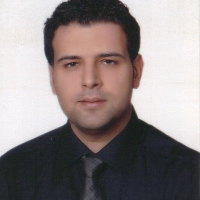
He was born in 1984 in Antakya. He is married. In 2010, he graduated from Anadolu University Faculty of Economics and Administrative Sciences Department of Economics in English, in 2015 from Anadolu University Faculty of Economics Department of Finance, and in 2018 from Anadolu University Open Education Faculty Department of Justice. In 2014, he graduated from the Kütahya Dumlupınar University Institute of Social Sciences with a Master's degree in Finance, completing a thesis titled "Microcredit as an Alternative Policy in the Fight against Poverty and Applications in Turkey," which earned him the title of finance specialist. In 2018, he graduated from the same university's Graduate School of Social Sciences with a Master's degree in Economics, completing a thesis titled "The Phenomenology of Wealth Tax," which earned him the title of economics specialist. In 2020, the author published his thesis titled "Demarchy in the Fiscal Paradigms of the 1982 Constitution: A Dialectical Evaluation." In 2024, the author graduated from Atatürk University, Department of Civil Air Transport Management. The author, who has many books, articles, and papers in the national and international arena, continues his studies as a lecturer at Kütahya Dumlupınar University Tavşanlı Vocational School Accounting and Tax Department.


Sociologist | Ethnographer | Researcher in Cultural Studies & Social Change
Antalya, Turkey | edemir.akdeniz@gmail.com | +90-544-575-49-55.
My doctoral research, titled “An Ethnographic Field Study on Abdals: Culture, Identity and Social Change – The Case of Antalya,” reflects my commitment to exploring marginalized identities and cultural practices through ethnographic methods. Additionally, my master's thesis focused on women’s political participation in Antalya, exemplifying my enduring interest in gender studies and political sociology.
Throughout my academic journey, I have worked on themes such as Roma communities in contemporary Turkey, funeral and ritualistic food practices, and identity formation in the margins of society. I bring with me not only a wealth of ethnographic data and qualitative insight but also a passion for interdisciplinary collaboration.

Dr. Hacı Mehmet Boyraz 1993 yılında İzmir’de doğdu. 2016 yılında Gediz Üniversitesi Uluslararası İlişkiler (ana dal) ile Siyaset Bilimi ve Kamu Yönetimi (çift ana dal) İngilizce bölümlerinden birincilikle mezun oldu. İki yıl sonra İngiltere’deki aşırı sağ oluşumlar üzerine hazırladığı tezle Türk Alman Üniversitesi’nde yüksek lisansını tamamladı. Sakarya Üniversitesi Uluslararası İlişkiler bölümünde hazırladığı “Avrupa Ülkelerinde Göçün Güvenlikleştirilmesi ve Aşırı Sağ Partiler: Macaristan ve Yunanistan Özelinde Karşılaştırmalı Bir Analiz” başlıklı tezle 2022 yılında doktorasını aldı. Bu süre zarfında ayrıca Anadolu Üniversitesi’nde Medya ve İletişim ile Adalet önlisans programlarını tamamladı. Bugüne kadar şu kitapların editörleri arasında yer aldı: “Avrupa Birliği Üzerine Tartışmalar” (3 cilt), “Bölgesel Aktörlerin Filistin Politikaları”, “The Palestinian Issue and Regional Actors”, “2021’de Türkiye”, “60 Yılın Ardından Türkiye-Almanya İlişkileri ve Almanya’daki Türkler”, “Uluslararası Örgütler: Tarih, Kuram ve Örnekler” ve “Merkel Dönemi Alman Dış Politikası”. Şu anda İstanbul Medipol Üniversitesi’nde lisans düzeyinde Türkçe ve İstanbul Esenyurt Üniversitesi'nde yüksek lisans düzeyinde İngilizce dersler veriyor.
Kamuda iç denetim, dış denetim, bürokrasi, yoksulluk, göç, insan hakları, yönetim psikolojisi, stratejik yönetim, yapay zeka, kamu taşınmaz yönetimi, kamu personel yönetimi, kamu mali yönetimi ve kamu politikaları.
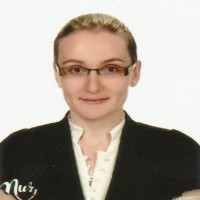



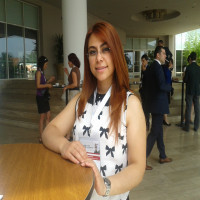

Hande Ortay works as an academician and lecturer at Ibn Haldun University and Karatay University.
Ortay also teaches Civil-Military Relations, Comparative Politics, Political History, European Integration, International Relations Theories, Political Economy, Political Sociology, Security, International Human Rights Law, Human Rights, International Relations, Middle East History, Migration and Racism. She is also interested in research paradigms such as Discrimination, Terror-Terrorist Organizations-Terrorism, Political Culture, Cultural Differences.
Contact to author:
E-mail: handeortay611903@gmail.com

Board Members
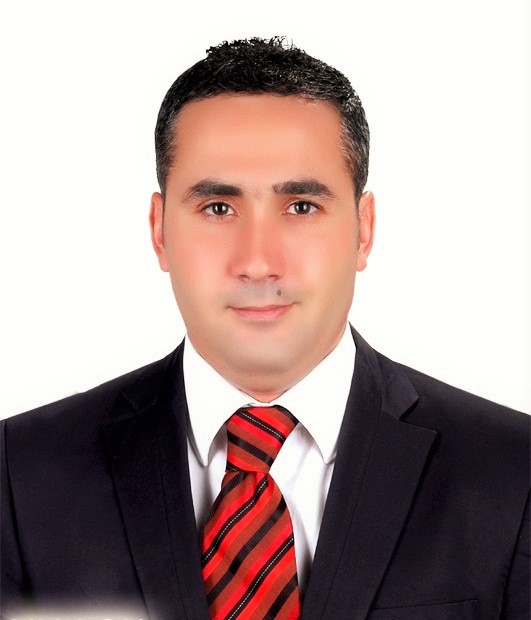



She is a faculty member of the Department Of Public Administration in Dokuz Eylül University, Faculty of Economics and Administrative Sciences. She acquired the titles of Doctor in 1985, Associate Professor in 1990 and Professor in 1996 in the Department of Urbanization and Environmental Problems within the same department. She is currently the Head of the Department of Public Administration and of the Department of Local Governments, Urbanization, and Environmental Policies. She is the founder of Master's (2014) and Doctorate (2015) programs in Disaster Administration under the Social Sciences Institute in Dokuz Eylül University.
Mrs. Toprak Karaman has founded the Strategic Planning, Governance, and Research Center of the City of Izmir (IZISYOM-2005) and has been the director of this institution. She was appointed as a representative of Dokuz Eylül University to work as a member of the Development Council of the Development Agency in Izmir (2006-2013). She actively volunteered in the works of Izmir Yerel Gündem 21 (Local Agenda 21) between 1995 and 2010. In 2013, she founded the Association of Sustainability and Governance of Mountain Areas. She has still worked as the executive committee member of this Association since 2020. She worked on preparing development plans in local government and environmental expertise commission on a national level. She co-chaired the 10th Expertise Commission on Development Plan and Local Governments.
She has books on local governments, urban administration and policies, environmental administration and policies; research studies and articles published in national and international magazines on local politics, urban and environmental problems, different types of migrations, disaster risks and especially European Council (The Congress of Local and Regional Governments) agreements; and awards from various institutions and organizations.


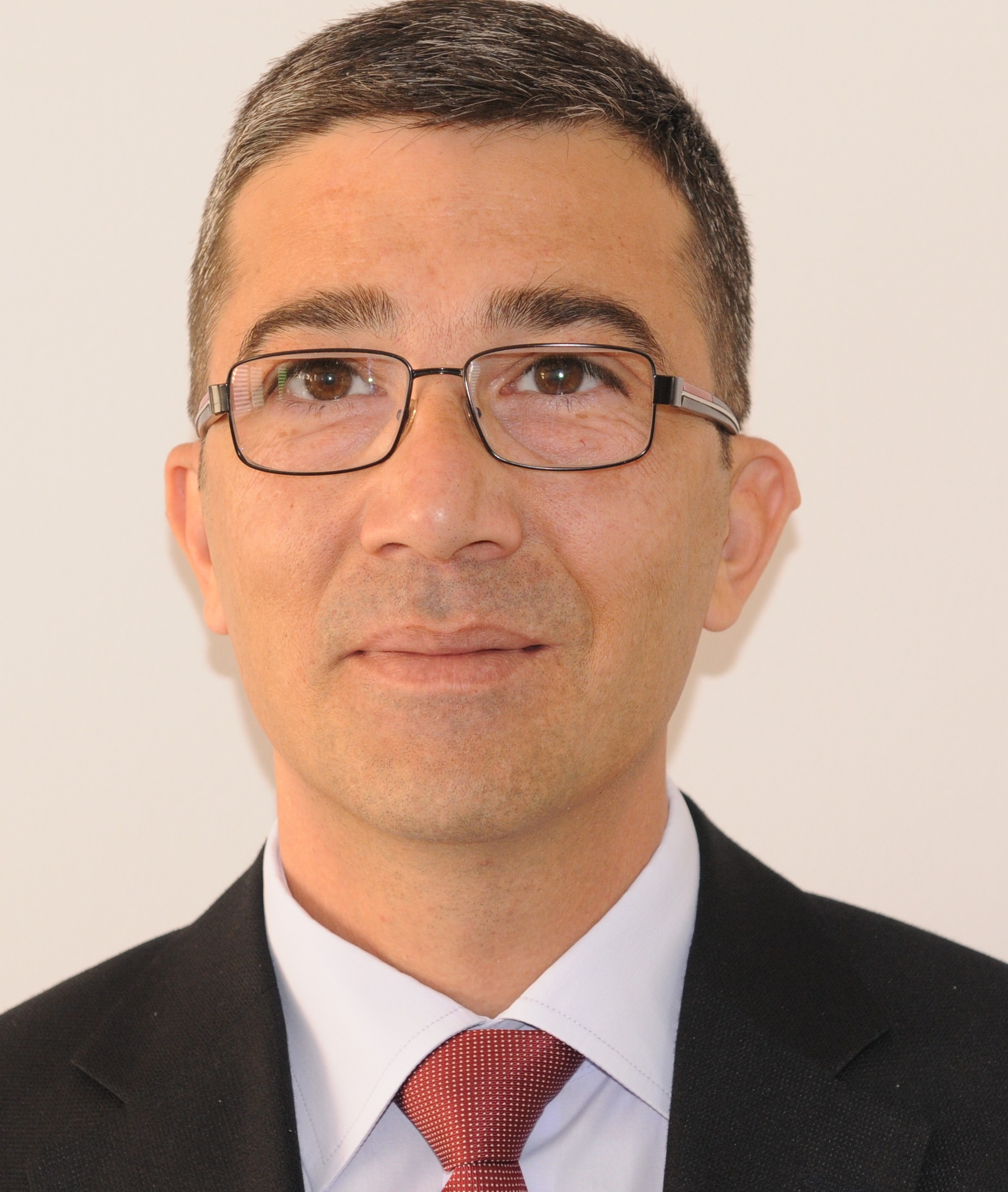
DOÇ. DR. AHSEN SAÇLI
1970 yılında Adana’da doğdum. 1993 yılında Ankara Üniversitesi Fen Fakültesi Kimya Mühendisliği Bölümü’nden mezun oldum. 1996 yılında Gazi Üniversitesi Mühendislik Mimarlık Fakültesi Kimya Mühendisliği Bölümü’nde Yüksek Lisansımı tamamladım. 1997 yılında Çevre Bakanlığı’na Kimya Yüksek Mühendisi olarak atandım. Daha sonra 1998 yılında Başbakanlık Basın Halkla İlişkiler Müşavirliği’ne atandım. Başbakanlık’ta müşavirlik görevime devam ederken, 2005 yılında Anadolu Üniversitesi İktisat Fakültesi Kamu Yönetimi Bölümünden mezun oldum. 2021 yılında Anadolu Üniversitesi Açık Öğretim Fakültesi Sosyoloji Bölümünden mezun oldum. Ayrıca 2003 yılında Ankara Üniversitesi Sosyal Bilimler Enstitüsü Sosyal Çevre Bilimleri Anabilim Dalı’nda başladığım Doktora programını 2009 yılında tamamladım. 2011 yılında Abant İzzet Baysal Üniversitesi’ne Yardımcı Doçent Doktor olarak atandım. 19.Ocak.2022 tarihinde “Yerel Yönetimler, Kent ve Çevre Politikaları” Bilim alanında Doçent oldum. 24.10.2022 tarihinde Ankara Hacı Bayram Veli Üniversitesi, İktisadi ve İdari Bilimler Fakültesi, Siyaset Bilimi ve Kamu Yönetimi Bölümüne Doçent Doktor öğretim üyesi olarak atandım. Bu görevimi sürdürüyorum.


Prof. Dr. Hüseyin Gül: 1991 yılında Ankara Üniversitesi Siyasal Bilgiler Fakültesi Kamu Yönetimi Bölümü’nden mezun oldu. Hacettepe Üniversitesi, İktisadi ve İdari Bilimler Fakültesi, Kamu Yönetimi Bölümü’nde yüksek lisans çalışmaları yaparken, YÖK bursu kazanarak lisansüstü eğitimi için Amerika Birleşik Devletleri’ne gitti. Teksas Üniversitesi’nde Kentsel Çalışmalar ve Kamu Yönetimi alanlarında iki yüksek lisans, Kent ve Kamu Yönetimi alanında ise doktora derecesi aldı. 1999 ve 2000 yıllarında, Amerika Birleşik Devletleri’nde gerçekleştirilen 1996-refah devleti reformu üzerine Rockefeller Enstitüsü’nce yürütülen araştırma projesinin Teksas ayağında araştırma görevlisi olarak çalıştı. Halen Süleyman Demirel Üniversitesi, İktisadi ve İdari Bilimler Fakültesi, Siyaset Bilimi ve Kamu Yönetimi Bölümü’nde öğretim üyesi olarak çalışmaktadır. Hüseyin Gül, kentsel yoksullukla ve kent ve kamu politikalarıyla ilgili değişik araştırma projelerinde yer almıştır. Bu alanların yanı sıra, kamu yönetimi ve sosyal devlet reformu, yerel yönetimler, kentleşme, kent ve kamu politikası, yerel kalkınma ve yönetişim, kentsel yoksullukla mücadele, kariyer planlaması gibi alanlarda ulusal ve uluslararası çalışmaları bulunmaktadır.

 Web
Web


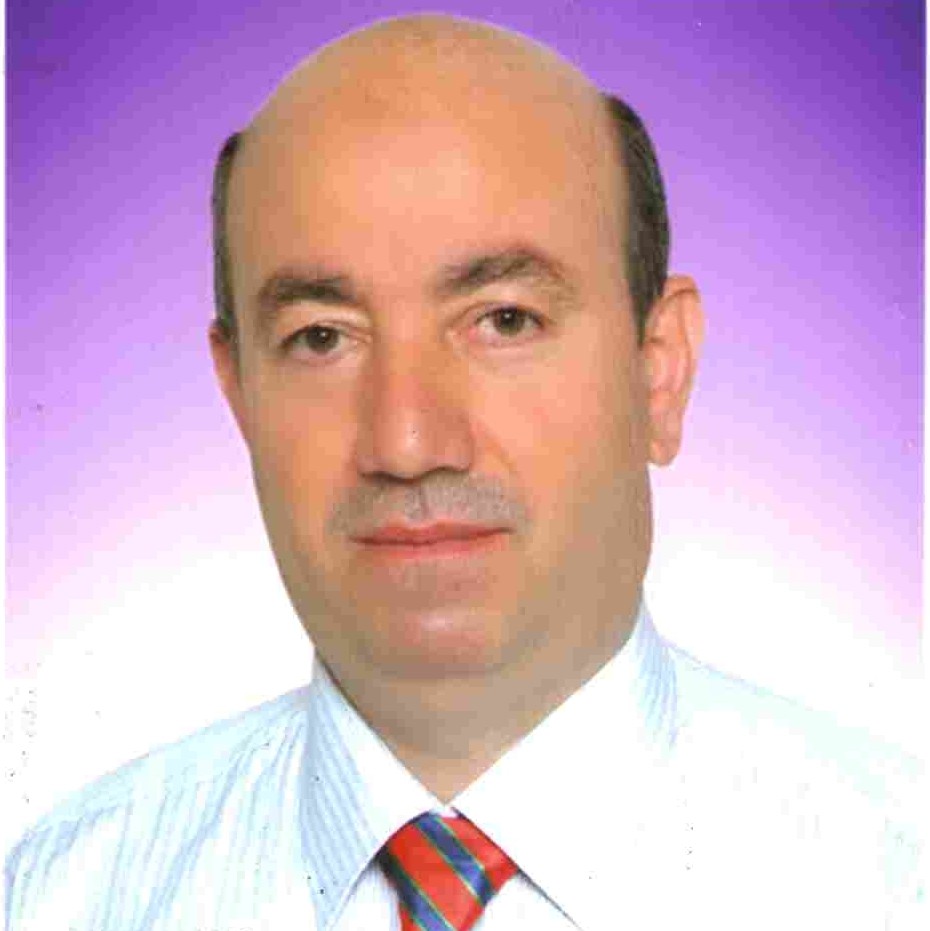
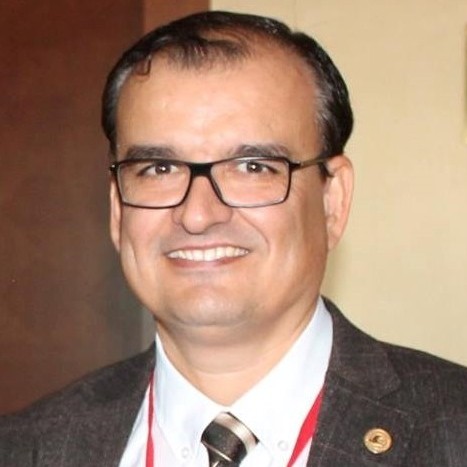
He has completed his primary and secondary school educations in Antalya and his high school education in Istanbul. He has got his undergraduate degree in economics at Anadolu University, masters degree in public administration at Kocaeli University, and PhD degree in public administration at Süleyman Demirel University. He started at Burdur Mehmet Akif Ersoy University from 2014 to 2021. He became associate professor in 2020 and he has started to work in the department of politics and public administration at Istanbul Medeniyet University. His field of research is related to strategic management, organizational change, management and organization, change management, and human resource management. Additionally, he worked as assistant editor in the Strategic Public Management Journal, and the Journal of Civilization Studies from 2016 to 2024.




1. Personal Information

ASSAM-UHAD is an internationally indexed peer-reviewed journal published in April and November.




